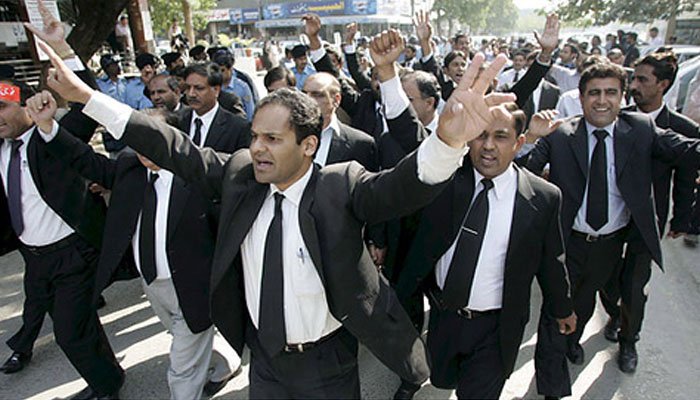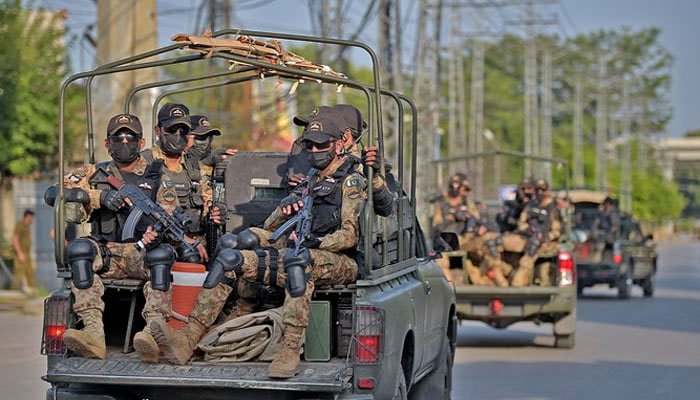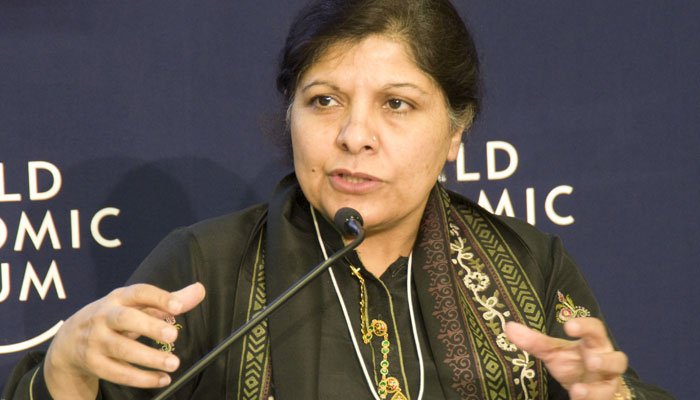The convention was marked by a brief disruption as disagreements arose over the mention of Form 47, leading to chants among attendees.
Lawyers plan nationwide movement against constitutional amendments. In a significant show of solidarity, lawyers from across Pakistan convened at the Karachi Bar Convention to oppose proposed constitutional amendments, threatening a nationwide movement in response. The All Pakistan Lawyers Convention, organized by the Karachi Bar Association, took place at the City Court and attracted prominent figures from various bar councils
Key attendees included officials from the Pakistan Bar Council, the Supreme Court Bar, as well as bar leaders from Lahore and Balochistan, among them former Supreme Court Bar President Munir A. Malik and lawyer leaders like Hamid Khan and Abid Zebairi. Notably absent were representatives from the Sindh High Court Bar Association.
The lawyers present unanimously condemned the proposed amendments as unconstitutional and illegal. Fida Gul, President of the Peshawar High Court Bar, expressed strong opposition to the creation of a constitutional court, questioning whether it aimed to establish a parallel Supreme Court. He declared that lawyers were prepared to make sacrifices to prevent any such amendments.
Asad Munzir Butt, President of the Lahore High Court Bar, criticized the government’s move to establish constitutional courts at both federal and provincial levels and raised concerns over plans to increase the Chief Justice’s retirement age from 60 to 65. He affirmed that the legal community was ready to mobilize for a nationwide campaign.
Karachi Bar General Secretary Ikhtiar Channa expressed disappointment over the Sindh High Court Bar’s lack of participation, criticizing the current Chief Justice for not prioritizing the welfare of lawyers.
The convention was marked by a brief disruption as disagreements arose over the mention of Form 47, leading to chants among attendees. Despite this, Channa clarified that the convention aimed to unite lawyers rather than pursue a political agenda.
Pakistan Bar Council member Muhammad Shafqat cautioned against the potential long-term implications of the amendments, suggesting they could ultimately become burdensome. He accused the Chief Justice of pursuing a personal agenda that could conflict with the Constitution.
Former Federal Law Minister Shahida Jameel urged lawyers to approach the situation with caution, raising concerns about the potential conflicts between a new constitutional court and the Supreme Court.
She also criticized the notion of appointing the first head of the constitutional court by the President, asking if this would not be considered interference. She emphasized that amendments should not be made secretly, and lawyers would not accept any amendment brought in secrecy.
President of the Islamabad High Court Bar Riasat Ali Azad asserted that no lawyer could fully accept the proposed amendment, stating that no one could file a writ against someone’s abduction in the name of security. He emphasized that this was a human rights issue and stated that a court appointed politically would also be political.
Former Supreme Court Bar Association President Ali Ahmad recalled that in 2007, lawyers were part of a movement that involved all lawyers across Pakistan, which he regarded as a golden chapter in Pakistan’s history. He mentioned their resolve to fight against military rule, emphasizing that they, too, were lawyers.
Afzal Herifal, President of the Balochistan High Court Bar, stated that they needed to fight for the people’s case and have made sacrifices for the Constitution. He urged for reasoned discussions and demanded that all drafts be shared with them. He warned that if discussions could be held on the 18th amendment, they should be able to have





